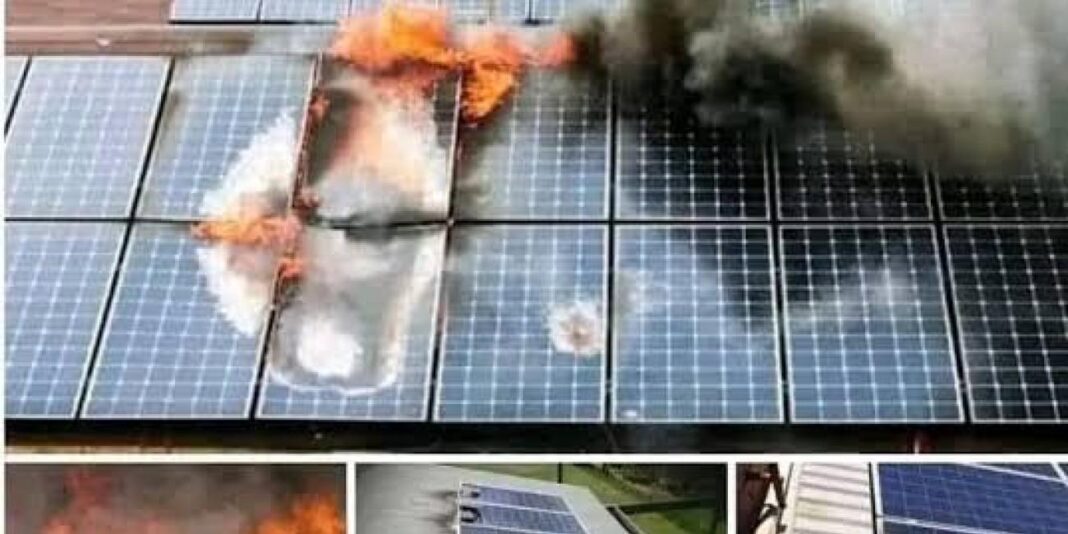As Nigeria approaches the peak of its dry season, solar energy users have been cautioned to prioritize maintenance and safety as higher temperatures and longer daylight hours could increase the risk of fire outbreaks from poorly installed or neglected systems.

Solar analyst Yakubu Yinusa explained that while the season offers ideal conditions for maximum energy generation — with clearer skies and stronger sunlight — it also raises the chances of overheating and electrical faults.
“Poor installations, fake components, and lack of maintenance are the biggest causes of solar-related fires,” Yinusa said. “Without proper ventilation, protective devices, and certified parts, excessive heat can cause electrical stress and trigger fires.”
The Nigerian Meteorological Agency (NiMet) recently projected temperatures between 36°C and 41°C in the North and 32°C to 37°C in the South, conditions Yinusa described as both “a blessing and a threat.”

He noted that several fire incidents in recent years were traced to substandard wiring, undersized cables, faulty charge controllers, and expired batteries. “In solar systems, prevention saves both money and lives,” he added.
Yinusa, who leads LightUpSolar Advocacy, said many users fail to distinguish between warranty and maintenance. “Warranty covers defects, not cleaning panels or tightening terminals,” he explained, urging regular checks to prevent hazards.
He also blamed the spread of cheap, low-quality components in local markets for recurring system failures. “Some homeowners reject certified materials because of cost, then buy unreliable ones that put their homes at risk,” he said.

The Standards Organisation of Nigeria (SON) has similarly warned against the influx of substandard solar and electrical components, noting that they pose serious safety and economic risks.
Experts advise users to engage qualified professionals, use standard components, and schedule routine maintenance, especially as the dry season intensifies.




